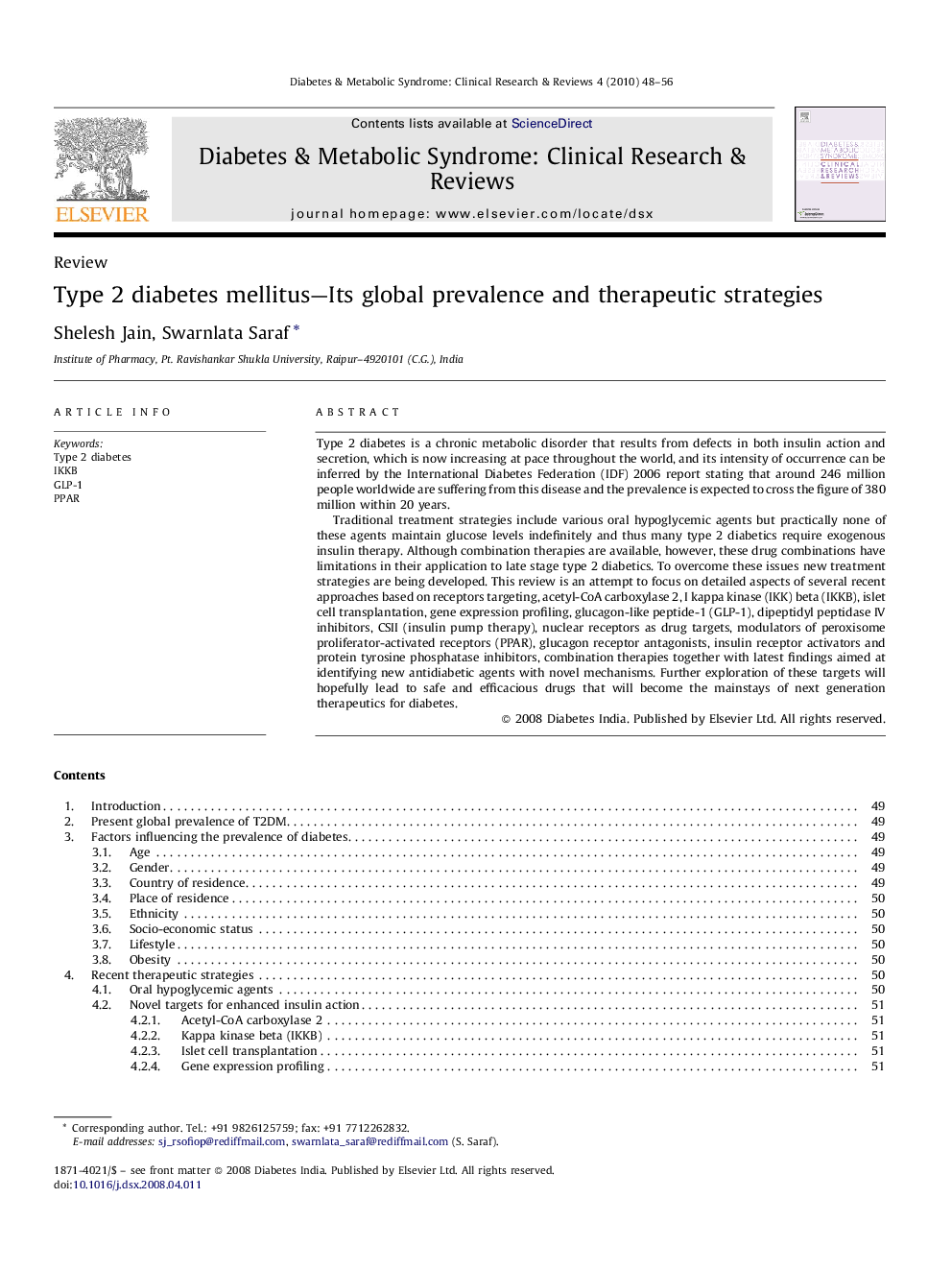| Article ID | Journal | Published Year | Pages | File Type |
|---|---|---|---|---|
| 2910244 | Diabetes & Metabolic Syndrome: Clinical Research & Reviews | 2010 | 9 Pages |
Type 2 diabetes is a chronic metabolic disorder that results from defects in both insulin action and secretion, which is now increasing at pace throughout the world, and its intensity of occurrence can be inferred by the International Diabetes Federation (IDF) 2006 report stating that around 246 million people worldwide are suffering from this disease and the prevalence is expected to cross the figure of 380 million within 20 years.Traditional treatment strategies include various oral hypoglycemic agents but practically none of these agents maintain glucose levels indefinitely and thus many type 2 diabetics require exogenous insulin therapy. Although combination therapies are available, however, these drug combinations have limitations in their application to late stage type 2 diabetics. To overcome these issues new treatment strategies are being developed. This review is an attempt to focus on detailed aspects of several recent approaches based on receptors targeting, acetyl-CoA carboxylase 2, I kappa kinase (IKK) beta (IKKB), islet cell transplantation, gene expression profiling, glucagon-like peptide-1 (GLP-1), dipeptidyl peptidase IV inhibitors, CSII (insulin pump therapy), nuclear receptors as drug targets, modulators of peroxisome proliferator-activated receptors (PPAR), glucagon receptor antagonists, insulin receptor activators and protein tyrosine phosphatase inhibitors, combination therapies together with latest findings aimed at identifying new antidiabetic agents with novel mechanisms. Further exploration of these targets will hopefully lead to safe and efficacious drugs that will become the mainstays of next generation therapeutics for diabetes.
